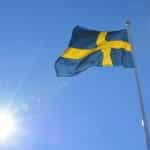Swedish operators lash out at restrictions
Following proposals to extend current restrictions on online casinos until June 2021, Swedish operator association Branscheforenigen för Onlinespel (BOS) has lashed out at the government in response — suggesting that the temporary controls should be thrown out completely.

The proposed extension of current restrictions on online casinos in Sweden has prompted sharp criticism from the operator association Branscheforenigen för Onlinespel (BOS). ©12019/Pixabay
Extension In Response to Pandemic and Rising Gambling Rates
A recent memorandum put forth by the Swedish government details plans to extend temporary controls on online casinos, ostensibly to shield players against the risks of gambling amidst the coronavirus (Covid-19) pandemic.
Such controls, initially introduced as of the 2nd of July, include a weekly deposit limit of SEK5,000 (£439.20/€490.00/$580.30), as well as users being forced to set themselves time limits on online games and slot machines. In addition, all iGaming bonuses are currently limited to only SEK100.
A report published by the Swedish Equality Commission earlier this year led to discussions on setting restrictions in order to lower the rate of gambling in Sweden. It claimed that the economic precarity caused by the coronavirus (Covid-19) pandemic would make those from lower-income backgrounds more susceptible to the pitfalls associated with gambling due to a lesser amount of disposable income being available to them.
The Commission, known as the Jämlikhetskommissionen, also discussed the displaying of warning messages alongside advertised gambling content in order to stem the perceived rise of gambling in the Scandinavian nation. The implementation of such disclaimers might prove challenging for a number of reasons, namely because it will demand changes being applied to the Swedish constitution.
Operators Association Highly Critical of Proposals
Temporary restrictions were proposed in the first place due to a concern that gambling rates would significantly rise during the coronavirus (Covid-19) pandemic, particularly online due to more segments of the population staying at home.
The operator association BOS, however, claims that such a spike never occurred, with secretary general Gustaf Hoffstedt asserting that “online casinos stood still, and sports betting decreased dramatically due to canceled matches; instead, it was games on horses that increased dramatically”.
Having been opposed to these restrictive measures since they first surfaced in April, the BOS further claims that extending said restrictions will result in two major, perhaps unintended, consequences.
In first order, it asserts that in response to the set weekly deposit limits, high-volume players will simply migrate between different operators in order to avoid being restricted by such limits, making it challenging for operators to monitor players’ behavior.
Secondly, these restrictions could potentially push players into the hands of offshore operators, many of whom do not hold the proper licenses in Sweden and who are therefore not required to abide by the measures put in place due to the coronavirus (Covid-19) pandemic.
What effect the extension of restrictions will have on the Swedish market and licensing system remains to be seen, though the BOS is already lamenting the emergence of an unregulated market with little to no consumer protection.
Independent Study Supports Operators’ Claims
Last month, new findings on the current gambling landscape in Sweden were presented to the Independent Research Council of Svenska Spel, with a particular focus on the betting patterns of citizens.
The findings revealed that at the peak of the implemented restrictions on gambling, the overall spend of gamblers in Sweden fell. Despite such a drop, the average amount of problematic gambling remained stable in the same period.
The fall in average spend comes as little surprise when considering that all sporting events had been canceled in this timeframe, prompting a clear move from sports betting to online casinos due to there being overall fewer options for consumers to gamble.
Although such an obvious shift from sports betting to online gaming was clearly observed in these studies, the result was not a wave of excess or unchecked gambling across the nation, as expected by the government. On the contrary, the findings asserted that there has been no rise in problem gambling in Sweden during the first wave of the pandemic.
Study Reveals Swedish Gambling in Decline
Further supporting both these studies, as well as BOS’ criticisms, were surveys conducted in the Spring by professor of psychology at the University of Lund, Anders Håkanssonthat. These found that gambling was in fact declining in Sweden during the pandemic. Out of 2,016 participants that took part in the survey, 1,246 responded that they had gambled in the past year.
From these results, the main findings indicated that 5.9% of players had been gambling more during the lockdown than they had been previously. In contrast, 11.6% of players reported that they had been gambling less in the same period.
An illustrative link was found between regular poker players prior to the pandemic and those who increased their gambling during the pandemic, with this sector being more likely to bet and spend more.
Be that as it may, it was also revealed that players who used to regularly frequent physical casinos where they spent significant sums were the least likely to increase the sums they gamble with. Along with slot game players and sports betters, this demographic in fact reduced their overall activity as the virus outbreak began.
Critical in the study’s findings was the revelation of a general trend that indicated less overall gambling across every vertical present in Sweden. Similarly, there was little to no evidence that players were switching from one form of gambling to another, instead showing that they were not gambling at all.
Worth noting, however, is that while the overall trend indicated that there was no increase in gambling — players with previously known gambling issues did tend to spend more significant sums when playing than others.



